contributors
Dmitry Babich

Dmitry Babich, born in Moscow, has worked for various Russian and international media outlets for more than 25 years. He is a frequent guest on BBC, Al Jazeera, RT, and CNN. His core areas of focus include Russia’s modern political history and international relations.
all articles
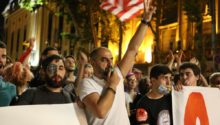

The Western press not only solidarized itself with the anti-Russian actions in Tbilisi, it also blamed the casualties on its favorite scapegoat – the Christian Orthodox church in Russia and Georgia.
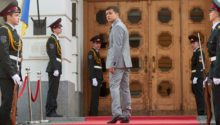

Even if Poroshenko leaves office, his legacy will prevent Ukraine from ending the war anytime soon. The warfare in eastern Ukraine is the fruit of NATO’s eastward expansion that was launched by Washington and Brussels in the mid-1990s without buy-in from Moscow.
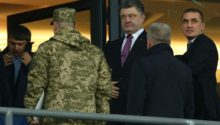

The frontrunners in Ukraine’s electoral race are familiar faces, bringing old and new dangers with them.


“Read Mary Shelley, read Frankenstein, and read it to the end.” Alas, the end may be too awful, too near – and not only for the Western sponsors of Islamist terrorism.
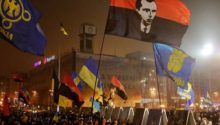

“The Ukrainian leadership set itself on the course of rehabilitating anti-Semitism and introducing censorship of history,” says an official statement of the Simon Wiesenthal Center.
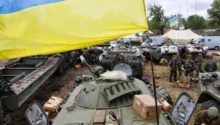

Thanks to the martial law, Poroshenko’s chances of winning the presidential election increased – even without an increase in his ratings, he saw his enemies demoralized.
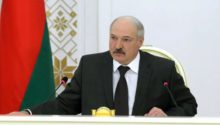

Has the cunning Belarusian leader once again shown himself an expert at trying to have his cake and eat it too?
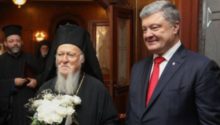

The chances of the smooth transition and easy victory over the “Muscovite believers” that Poroshenko wants so badly are quite slim. There are big scandals, big fights, and big disappointments ahead.
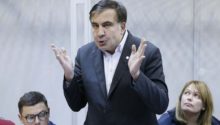

The real scandal over prince bin Salman and President Saakashvili is the way they were originally portrayed as “young reformers” in the western press


The sudden visit of the embattled Syrian president Bashar al Assad to Moscow, President Putin’s appearance before the participants of the Valdai group of international experts on Russia, during which Putin was flanked by the Speaker of the Islamic Consultative Assembly (parliament) of Iran Ali Larijani, constant flow of foreign dignitaries and politicians to Moscow – all of that does not look like an isolation. And this is apparently the message which both Assad and Putin wanted to get across to the West – we are not isolated and we are far from being alone…



